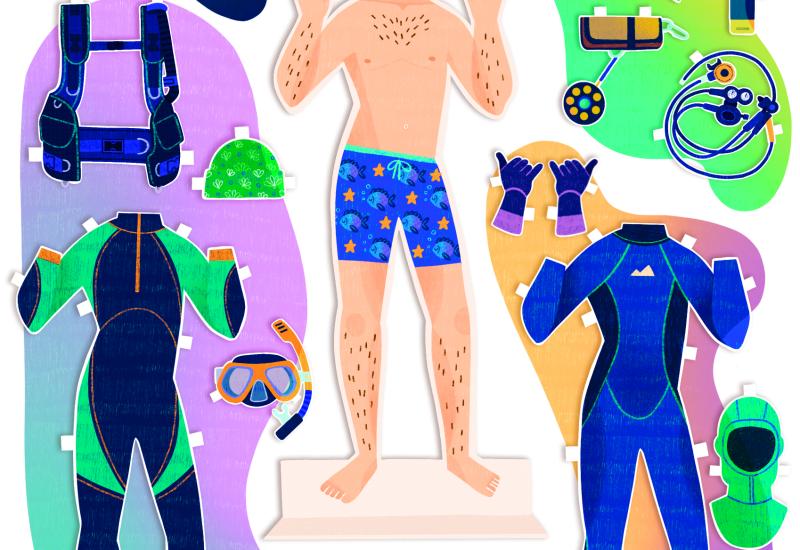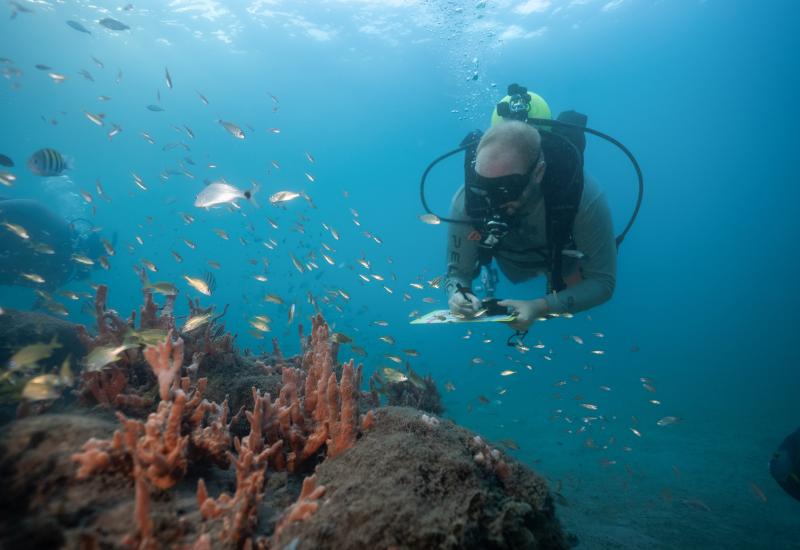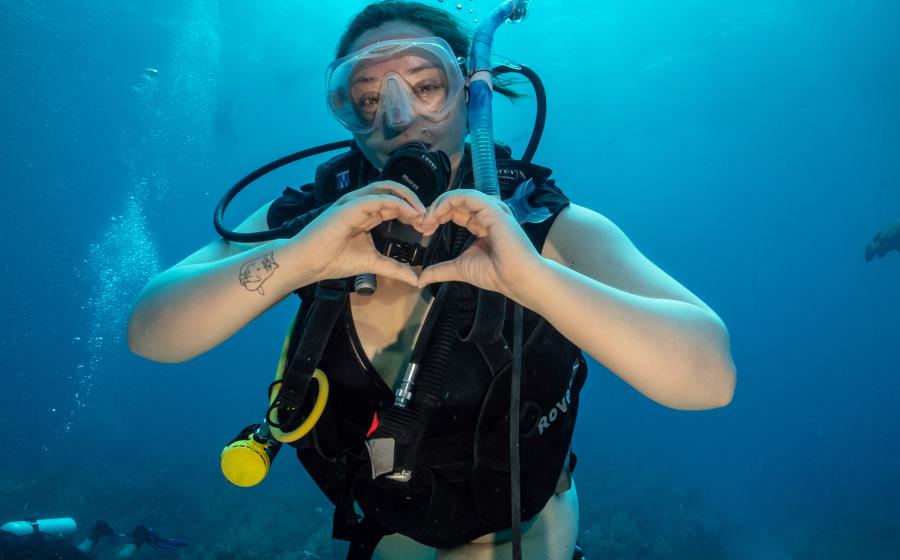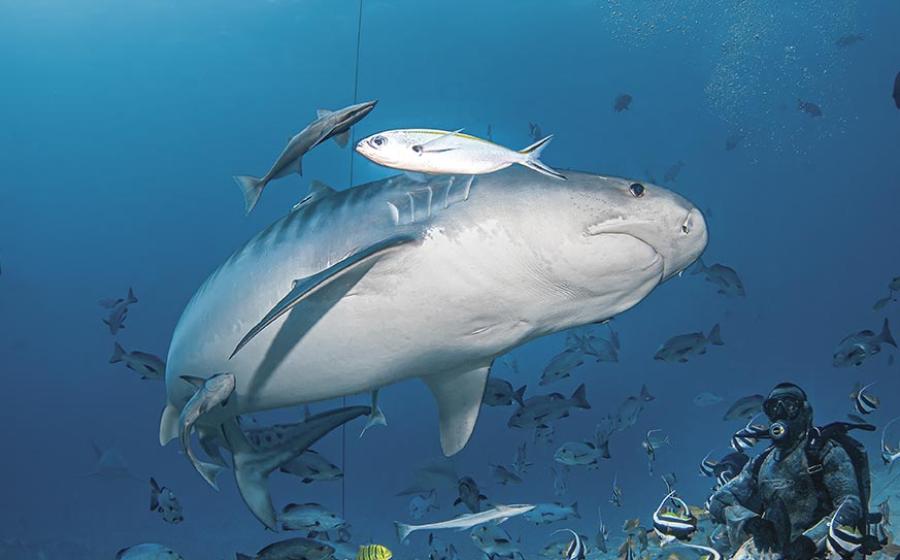PADI Course Helps Cayman Islands Dive Operators Battle Lionfish

To help the Cayman Islands deal the invasion of lionfish in their local waters, Cayman Islands Dive Operators are offering reduced PADI course fees to visitors and residents this fall. With recent approval from the Marine Conservation Board, local dive operators are now able to teach the PADI Lionfish Tracker Distinctive Specialty course, and upon completion, guests receive the PADI c-card plus a local lionfish culling license.
“With reduced course fees for the lionfish culling course for both residents and visitors, we hope will encourage more manpower to help us fight this invasion,” comments Steve Broadbelt of Cayman Islands' Ocean Frontiers. “We cannot totally eradicate the lionfish, but learning lessons from the Bahamas for example, if we do not keep this fish in check, our indigenous marine life will be gone. This results in a reduction of fish stock, marine life and allows corals to become covered in algae, so the health of the coral reefs is at stake and we need all hands on deck”
Reduced price PADI courses are currently available from Divetech, Ocean Frontiers, Deep Blue Divers, Cayman Turtle Divers, Divers Down and Dive N Stuff (as of press time) or check with your local dive shop to inquire about the course. After your course, there are boats running from various operators every week to cull lionfish, along with the tournaments run by Ambassador Divers, so there is a lot of opportunity to use the new skills.
“Snorkelers can help too as many lion fish can be found in shallow waters just offshore and in the canals in the North Sound. This is prime breeding ground for lobsters, groupers, snappers and more, so removing lionfish from the North Sound can play a huge role in helping to cull the invasion” stated Nancy Easterbrook of Divetech. “They are tasty – a light white fish that needs a little special handling while filleting to remove the venomous spines, but well worth it. Many restaurants are now serving lionfish on a special or full time menu, so ask for lion fish when you are next out to dinner, or try it at home. Not only will this help create a market for the lionfish, but it will have the positive side effect of reducing the demand for the ‘traditional’ eating fish like conch, grouper and snapper, allowing fish stocks to grow and be sustainable.”
Rod McDowall of Red Sail Sports in the Caymen Islands says, “We’d like to express our thanks to all of the sponsors that continue to help us in the effort to cull the lionfish. Its encouraging to see non-traditional dive industry companies and individuals come forward that are helping to make this a truly holistic effort that we hope to win, as it’s a challenge that's day in and day out and affects every one of us.








